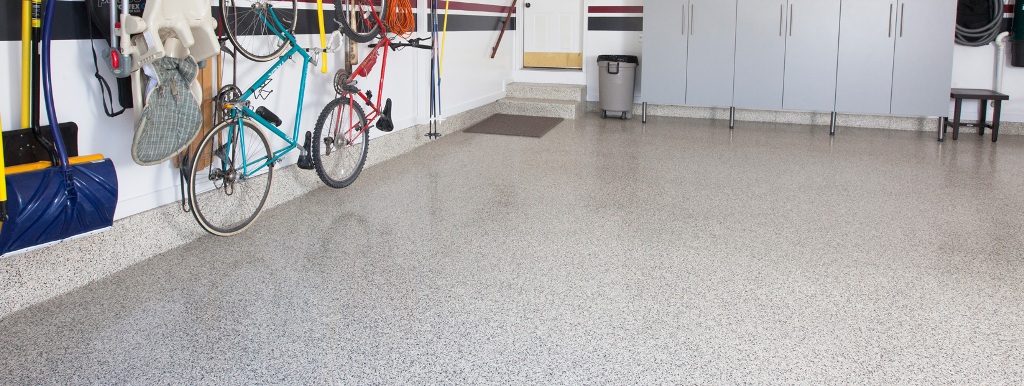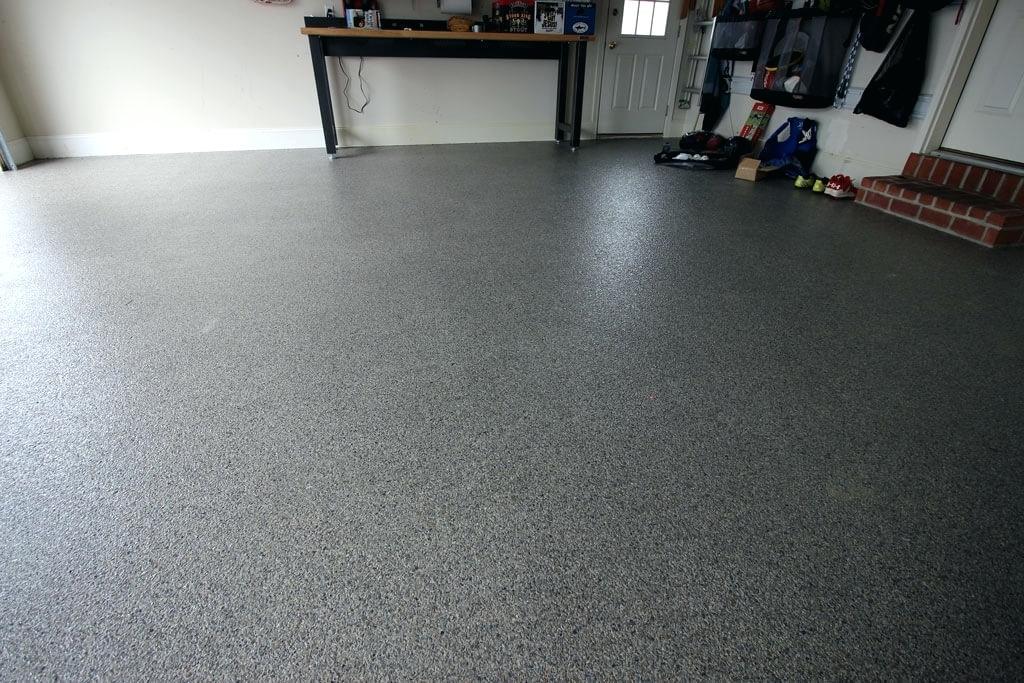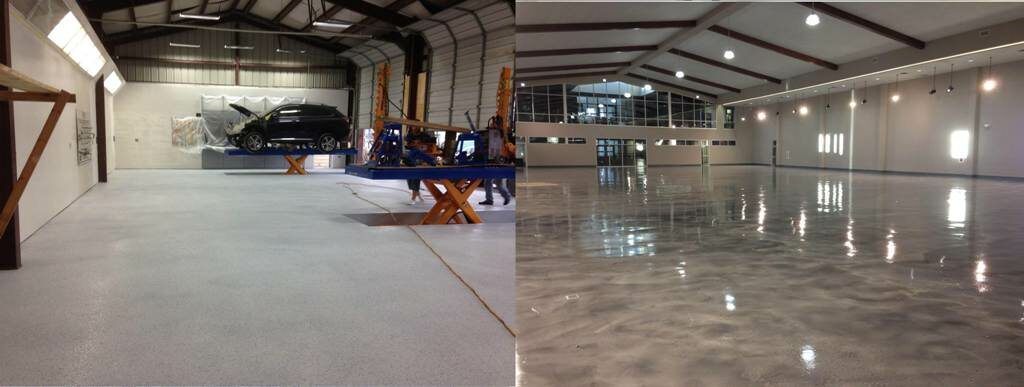There are a number of things to consider when installing new floors in your garage. Perhaps you’re worried about track marks, cost, vulnerability to damage, or even the visual appearance of your garage floors. In this quick guide to epoxy floors, we break this all down (and more), and answer the question: is it worth it?
Epoxy flooring is often misunderstood as a kind of floor paint, but that could not be more wrong. While it is “painted” on, epoxy flooring refers to a mixture of hardeners and epoxy resins that creates a layer of ultra-strong plastic-like material that is applied to floors. It’s also the preferred choice of flooring for industrial buildings, hospitals, and garages.
Advantages and disadvantages of epoxy floors

Epoxy floors are a popular material for garages. To understand why you will have to know exactly what it brings to the table:
- Resistance – Epoxy floors are highly resistant to heat, chemicals, stains, cleansers, water, and just about anything that might come into contact with it. This makes it a highly suitable material for the garage where a number of things may accidentally spill or fall on it, like grease and bleach.
- Durability and longevity – we know that epoxy floors are highly resistant, but they’re also a supremely strong material that can withstand most activity. They are often installed in high-traffic areas where heavy machinery regularly passes over it, and they still show little to no damage. For a garage, that means you have durable and reliable floors that will also last a long time.`
- Appearance – Epoxy floors do not have a singular look, and in fact come in a great variety of colors and designs. Many opt for metallic finishes or abstract designs in their epoxy floors that are made more attractive by the shiny and glossy nature of the material.
- Affordability – For so many advantages, epoxy floors are surprisingly affordable. They come at a low cost because they can be installed over almost any flooring material, including concrete. But if you plan to DIY it, the costs of the materials will add up, so we recommend hiring a professional to complete the job.
But as with any other flooring material, there are some drawbacks to choosing epoxy floors for your garage:
- Complicated and time-consuming – A professional contractor is usually recommended because of how important the prep work is; if the floor is not properly tested, fixed, and prepared then the epoxy will simply not bind to it. It is also applied in layers, and each layer will have to be completely dry before applying another one, which can take an entire day to dry.
- Difficult to remove – Once applied, it is a costly and difficult process to remove epoxy floors should you ever make the choice to replace them.
- Slippery – Slip-resistance varies among types of epoxy floors, but they generally fall into the “not slip-resistant” category when it comes to flooring materials. This, while dangerous, can be mitigated by adding a texture to your epoxy floors at installation.

Conclusion: are they worth it?
On the basis of simple pro-con analysis, epoxy floors are definitely worth installing in your garage. They offer spill-resistance, durability, longevity, and customizability at a cost other flooring materials simply can’t beat.
Furthermore, the drawbacks of epoxy floors can be alleviated by hiring a professional who can handle the task efficiently, apply a texture for slip-resistance if needed, and perform the job well enough that you won’t need to consider replacing them.






